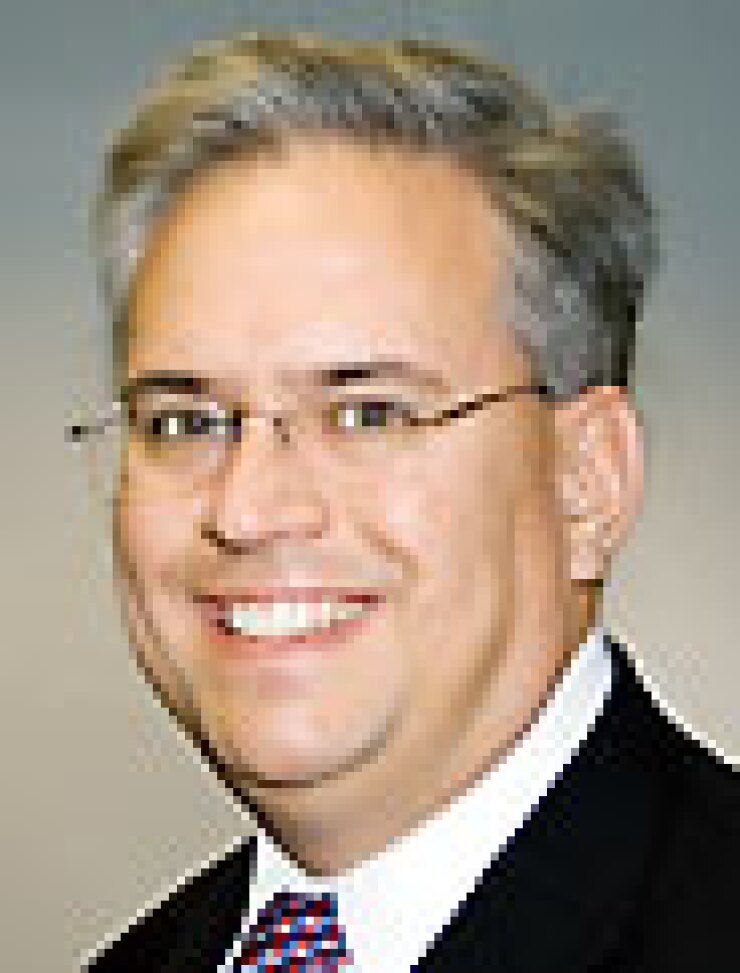
WASHINGTON — Independent municipal advisers are strongly opposed to the Municipal Securities Rulemaking Board’s
Their opposition comes only one week before the MSRB must appoint new members for its 2011 fiscal year, which begins Oct. 1.
In comment letters filed this week with the Securities and Exchange Commission, nondealer muni advisers said they are angry about the MSRB’s proposed changes to its Rule A-3 and that they want equal representation with bank and securities dealers.
“The proposal of seven broker-dealer and bank-dealer members compared to three municipal adviser members does not constitute fair representation” required under the Dodd-Frank Wall Street Reform and Consumer Protection Act,
Susan Gaffney, director of the Government Finance Officers Association’s federal liaison center,
Comments on the proposal were to have been submitted to the SEC by Wednesday. The proposal is designed to accommodate the board’s new oversight of nondealer advisers, as well as a Dodd-Frank provision that the board switch to a majority public membership — a change from its current composition, in which securities dealers and bank representatives make up 10 of 15 members.
In its notice on the proposed rule changes, the MSRB said it plans to elect 11 new members: eight from the public and three from the municipal advisory community.
Sources have said that expanding the board to 21 allows all but one of the eight existing dealer members to continue to serve out their terms without cutting them short. The expanded structure also would ensure that advisers do not at any given time outnumber bank or securities dealers, they said, adding this is reasonable “in terms of regulatory concerns and in terms of sheer numbers” because there are far more individuals working at dealer firms than muni advisory shops.
Though the Dodd-Frank law only mandates the board have at least one adviser, SEC staff have insisted it should have at least three, they said.
The independent advisers also are upset that the existing board has already appointed officers for the new board for fiscal 2011. The board kept the names of those officers secret until last week, releasing them ahead of plans by The Bond Buyer to publish them. The board had previously planned to announce the officers with the new members after the SEC approved its proposal to expand the board.
Michael Barolotta, vice chairman of First Southwest Co., a dealer financial advisory and underwriting firm, has been elected the new chairman, while John Young 2d, managing director of municipal underwriting and public finance marketing at Samuel A. Ramirez & Co., will serve as co-chairman.
Thomas DeMars, managing principal at Fieldman Rolapp & Associates in Irvine, Calif.,
“For the prior board to take action in July to elect new leadership, and to keep that information from the public and industry participants, causes dismay and disappointment,” DeMars wrote. “Even against the backdrop of reform and the mandate of a majority public board and inclusion of new regulated members, the existing MSRB board has apparently maintained prior practices that, in effect, disenfranchise the incoming board.”
“The secrecy of this past summer relating to the election of officers is exemplary of the board’s anti-transparency tendencies,”
To eliminate “distrust and cynicism” created by a secretive environment, Doty said that board should make public its internal communications and analyses.
Nondealer advisers also criticized the criteria the board is setting for the 11 “public” members. The board has proposed these individuals have “no material business relationship” with dealers or advisers within the past two years.
Doty said five years is more appropriate, but Joy Howard, principal at WM Financial Strategies
The Securities Industry and Financial Markets Association reacted more favorably to the proposal, saying it supports allocating 30% of the industry seats to advisers on a temporary basis. However, Michael Decker, the industry group’s co-head of municipal securities,
Similarly,





